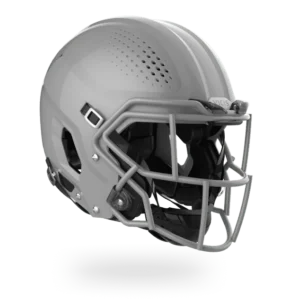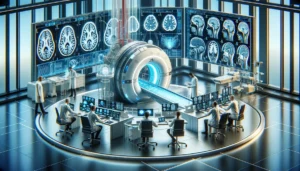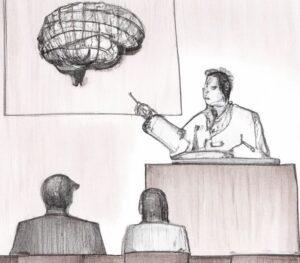Depression related to traumatic brain injury (TBI) involves a complex relationship between the changes in the brain caused by the injury and the psychological impact of adjusting to life afterward. TBI occurs when an external force injures the brain, which can happen through impacts to the head, falls, or vehicle accidents. This injury can lead to various effects, including physical, cognitive, emotional, and behavioral changes. Among these, depression stands out as a common and significant consequence, deeply affecting recovery and life quality.
Exploring the Connection Between TBI and Depression
The link between TBI and depression is profound, with research showing that individuals who have suffered a TBI face a significantly increased risk of developing depression. The reasons are multifaceted: brain injuries can directly damage the areas that regulate mood, like the prefrontal cortex and limbic system, while the psychological strain of coping with new limitations and life changes also plays a critical role.
Neuroinflammation, changes in neurotransmitter levels, and disruptions in neural networks contribute to the development of depression in TBI survivors. Additionally, the stress of dealing with new limitations, chronic pain, altered social roles, and the psychological trauma from the injury itself further exacerbate depressive symptoms.
Challenges in Diagnosis
Identifying depression in individuals with TBI is challenging. The symptoms of depression, such as fatigue, trouble concentrating, and sleep issues, overlap with the effects of the brain injury itself. This overlap complicates the process of diagnosing depression as a distinct condition that requires targeted intervention.
Cognitive impairments from TBI can also make it difficult for sufferers to report their symptoms accurately, requiring healthcare professionals to observe and assess carefully to diagnose and treat depression effectively.
Treatment Strategies
Treating depression after TBI typically involves medications, psychotherapy, and supportive measures for both the individual and their family. Antidepressants can help adjust the brain’s chemical balance, although the unique changes in brain function following a TBI can affect their efficacy.
Psychotherapy, especially cognitive-behavioral therapy (CBT), proves effective in helping individuals adjust to life after TBI and manage depressive symptoms. CBT aims to modify negative thought patterns and behaviors, offering significant benefits for those grappling with the psychological impacts of their injury.
Support groups and rehabilitation programs play a vital role in treating depression associated with TBI by addressing both the physical and emotional facets of recovery. These resources offer education, coping strategies, and community support to individuals and families with TBI.
Conclusion
Depression in the context of TBI demands a proactive and comprehensive management approach. Considering the intricate effects of TBI on both the brain and individual psychology, treatment requires a personalized, multidisciplinary effort. Prompt detection and intervention are crucial to improving the quality of life of TBI survivors. Ongoing research into TBI and its psychological effects is essential for developing more effective treatments and support systems for this population.
References
Maller JJ, Thomson RH, Lewis PM, Rose SE, Pannek K, Fitzgerald PB. Traumatic brain injury, major depression, and diffusion tensor imaging: making connections. Brain Res Rev. 2010;64(1):213-240. doi:10.1016/j.brainresrev.2010.04.003 https://www.sciencedirect.com/science/article/abs/pii/S0165017310000445?via%3Dihub https://pubmed.ncbi.nlm.nih.gov/20388528/
Silverberg, N.D., Panenka, W.J. Antidepressants for depression after concussion and traumatic brain injury are still best practice. BMC Psychiatry 19, 100 (2019). https://doi.org/10.1186/s12888-019-2076-9






